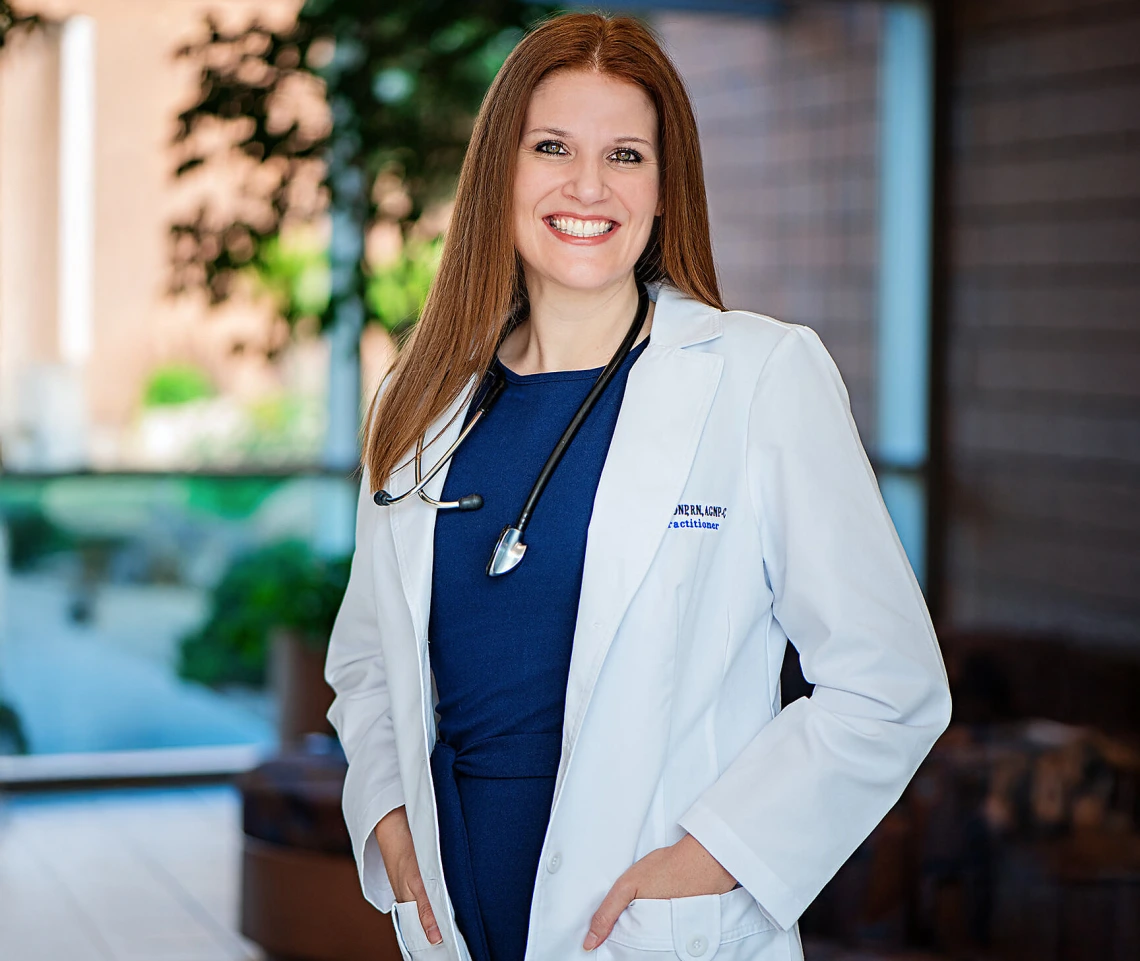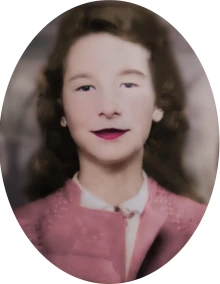From Grief to Purpose: How a PhD student discovered her calling in Nursing


Misty Pagan's grandmother
Misty L. Pagán, DNP, MSN, APRN, AGNP-C, first felt called to pursue a career in health care after experiencing the devastating loss of her grandmother, who died unexpectedly at a rural Pennsylvania hospital. Born to two teenage parents, Pagán was raised by her paternal grandparents alongside her parents in a small, close-knit town where the nearest hospital was an hour away and healthcare access was limited. Her grandfather, a World War II veteran, worked as a coal miner for over 40 years, while her grandmother was a homemaker and a seasonal school bus driver who was the heart of the family.
In 2001, shortly after her grandparents celebrated their 50th wedding anniversary, Pagán’s grandmother suddenly died at the age of 67. The loss was deeply heartbreaking given the circumstances of her passing. Although she was preparing to be discharged, she never made it home. “She was the backbone of our family, and after her passing, our family traditions of Sunday dinners and holiday celebrations were never quite the same,” said Pagán.
Pagán remembers every detail of that time. Her grandmother died the day after her oldest son’s third birthday, a date she can never forget. During the hospitalization, Pagán noticed lapses in care that alarmed her. “I would help her on and off the bedpan, and when I asked nurses if they were going to measure her urine, they would say ‘no’ and just dump it,” she recalled. Intake and output monitoring, a fundamental part of nursing care that involves recording food and fluids entering and leaving the body, wasn’t done. Pagán didn’t have the medical knowledge yet, but she sensed something was very wrong.
The truth was even worse than she realized. Later, she found out that the hospital was so short-staffed that front desk receptionists, who had no medical training, were acting as telemetry monitors — roles that require careful observation of heart rhythms and vital signs. After her grandmother’s death, Pagán saw her body and remembers how unrecognizable her grandmother looked, grossly edematous (fluid trapped in the body’s tissues) from head to toe. With the knowledge she has now, she believes her grandmother died from fluid overload that caused pulmonary edema and ultimately led to cardiac arrest. The experience was life-changing. “In her memory, I vowed that I would never stop learning so that I could serve others as a competent and compassionate health care provider,” Pagán said.
At that time, Pagán was managing a credit union and working weekends as a developmental care specialist for residents with severe physical and intellectual disabilities. Many residents had no family, and staff became their advocates. After her grandmother’s passing, this role gained increased significance. She didn’t want others to experience the same preventable suffering her grandmother endured.
What started as grief turned into determination. Pagán decided to dedicate her life to nursing. As a first-generation college student, she began her career as a certified nursing assistant (CNA), then became a licensed practical nurse (LPN), and ultimately a registered nurse (RN). She continued to become a master’s-prepared adult-gerontology primary care nurse practitioner (AGPCNP). Finally, she earned her Doctor of Nursing Practice (DNP) degree from the University of South Alabama.
In 2023, she furthered her education by pursuing a PhD in Nursing with a minor in aging and interprofessional education at the University of Arizona College of Nursing. She will be the first DNP-prepared student to take the comprehensive exams in the PhD program in Nursing. “I am so glad I chose the University of Arizona for my PhD program because of the incredible faculty,” Pagán said. “This journey has been amazing, and the faculty have been extremely supportive in helping me navigate this unique trajectory.”
Today, Pagán is a research associate in the Harm Reduction Research Lab led by Beth Meyerson, PhD, policy director of the Comprehensive Center for Pain and Addiction and the Beverly Benson McCord Endowed Chair at the College of Nursing. Their research focuses on urgent health care issues such as pain management and opioid use disorder in aging populations, an area often overlooked in research.
Pagán’s diverse clinical experiences provide her with valuable insights into these issues. She has worked in acute and long-term care, correctional facilities, home health, family medicine, and in rural and border communities. Her experience as a bilingual provider gives her direct insight into the barriers faced by vulnerable populations. Pagán’s career is focused on serving marginalized, underserved, and overlooked groups. She believes that nursing research and education should drive improvements in practice and policy, especially for vulnerable populations such as older adults. “My goal is to advocate for patients and their family members to reduce the risk of inadequate care and preventable hardships,” she said.
Her long-term goal is to utilize research to enhance health sciences education and integrate more effective care practices for vulnerable populations into interdisciplinary healthcare curricula for nursing, medicine, and pharmacy programs. Beyond her research, Pagán serves Veterans as an advanced practice provider and works as a clinical nurse liaison for a national long-term care pharmacy provider. Additionally, Pagán is a peer reviewer for leading journals, including those of the American Society of Consultant Pharmacists (ASCP), the American Association of Colleges of Nursing (AACN), and the American Association of Nurse Practitioners (AANP).
Reflecting on her journey, Pagán often quotes Gandhi’s words: “The best way to find yourself is to lose yourself in the service of others.” That principle has guided her through every stage of her career, from nurse to educator, advocate, mentor, and leader.
Through her dedication to education, clinical practice, and research, Pagán has turned a deeply personal tragedy into a lifelong mission. Her story emphasizes the powerful reasons why people become nurses: to serve, advocate, and ensure that patients receive the compassionate, skilled care every person deserves. For Pagán, the promise she made to honor her grandmother continues to shape her life and motivate the next generation of nurses.

